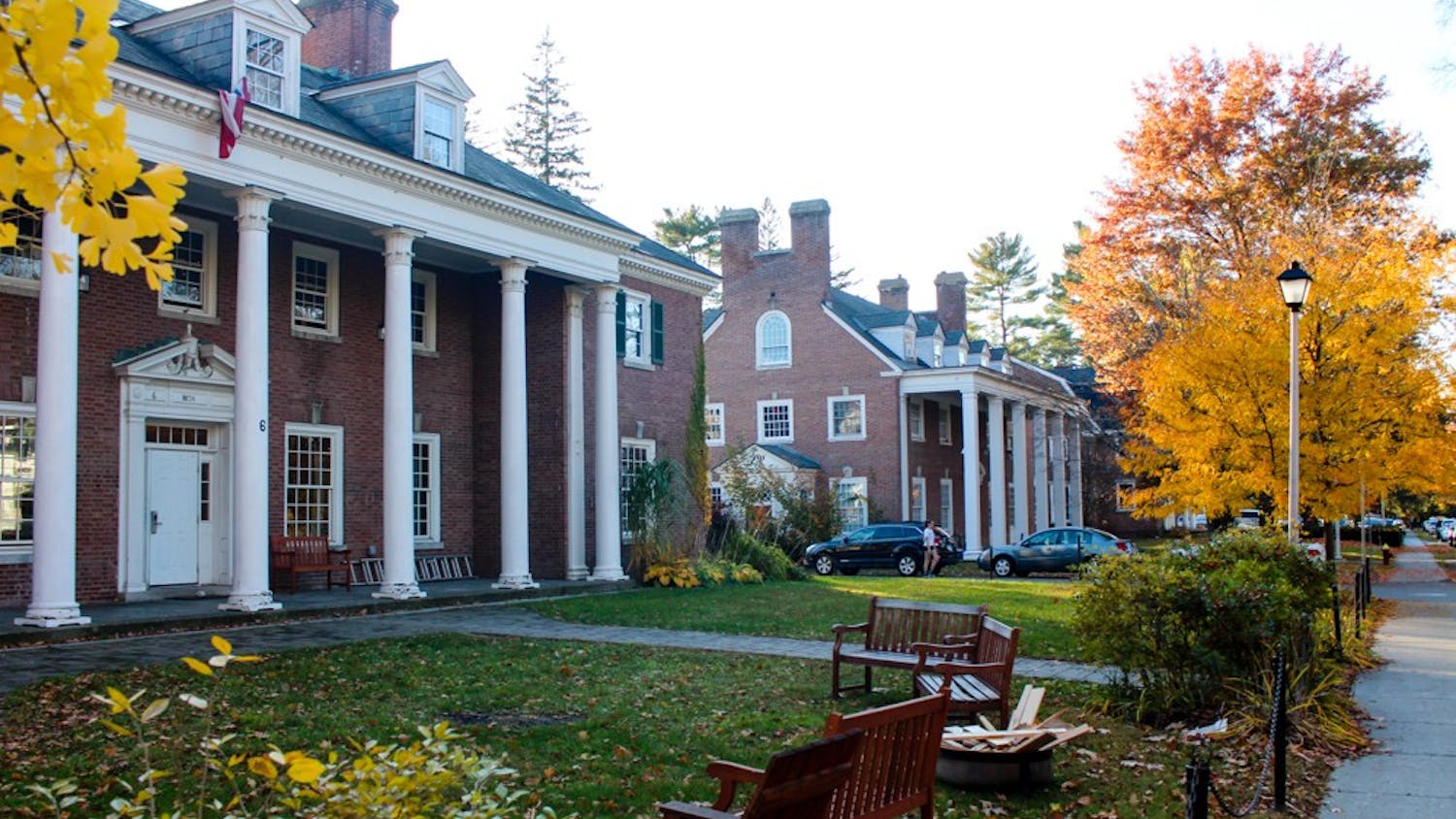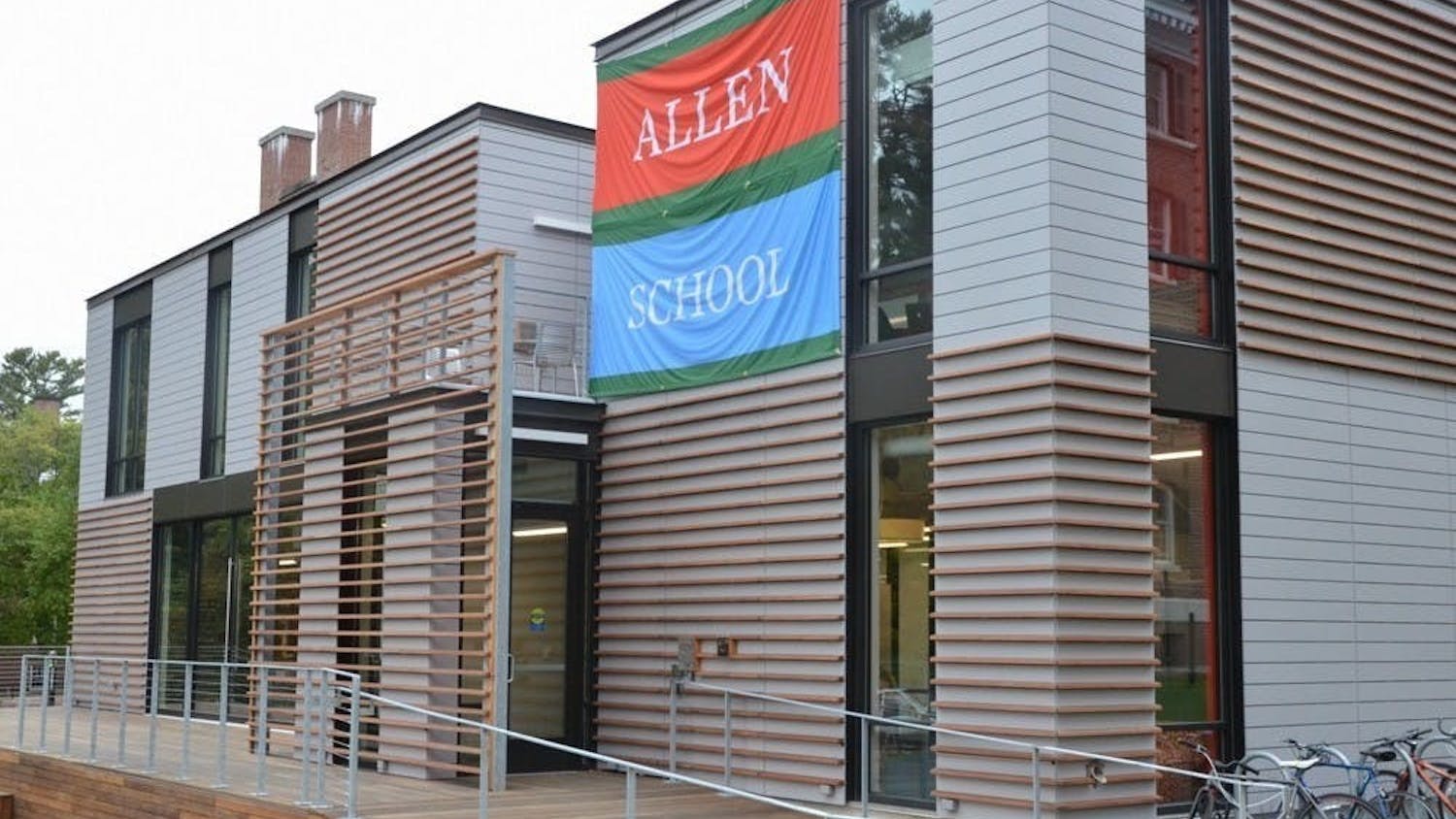This article is featured in the 2021 Spring special issue.
Since the inception of Dartmouth’s house communities in 2016, the system has drawn criticism and praise alike, but it perhaps inspires no feeling quite like apathy. A survey conducted by The Dartmouth in January of 2020 found that 73% of students disagreed with the statement: “I feel a strong sense of community with those in my House.”
Many students, like David Millman ’23, don’t feel strongly for or against the house system. Although Millman describes his opinions as “neutral,” he doesn’t feel that the system is necessary nor contributes much value to campus.
“My biggest problem with [the house system] is that it’s trying to fulfill a need that’s not there,” Millman said.
However, the COVID-19 pandemic dramatically altered the campus social scene and left a void once filled by Greek life, face-to-face club meetings and in-person classes. Without these spaces to provide community for members of the Class of 2024, was the house system able to fill a newly-formed niche?
For Nicolas Macri ’24, the house communities did the opposite, and only served to reinforce limits on socialization. Last fall, students were prohibited from entering any dorms except the one they lived in due to pandemic precautions, which Macri felt restricted his social circle to people within West House and limited his ability to connect with students in other houses.
“Over the summer, I met dozens of Dartmouth friends over GroupMe, and we were all really excited to see each other in the fall,” Macri said.“When we got there, practically everybody I knew was in School House.”
Macri said he recognizes the potential of house communities as a means of community-building and even attended a few house Zoom events, including a murder mystery party and an escape room. Still, especially during the pandemic, he said that the house system has as much potential to isolate students as to welcome them.
“[The pandemic] very much heightened the feeling of: ‘Oh, since I wasn’t lucky enough to be randomly assigned the same dorm as my friends I’m not allowed to see them,’” Macri said. “I don’t know how much that applies now, because we’re a lot more free, but the damage is still done for [’24s] who were here in the fall.”
Samantha Palermo ’24, a resident of North Park — the smallest of the six houses — feels similarly. While she appreciates the community provided by North Park, she notes the dissonance between what she expected of the house system versus what her experience has shown it to be.
“[Originally] I thought: ‘That’s neat! We’re gonna get sorted like Harry Potter,’” she said. “I got here and now I kind of have mixed feelings about it.”
Palermo said that while she became close with her freshman floor — North Park, she indicated, is small enough to provide a “sense of community” — and enjoys the events the house puts on, she also believes the house system creates barriers that make it harder to connect with people outside her house.
“I have a really good friend in a different housing community, so we know even now as freshmen that we’ll never be able to room together unless we live off-campus, because of those barriers” Palermo said.
Perhaps the most notorious policy of Dartmouth’s house communities is that students who want to live in their house’s residential buildings after their freshman year must choose roommates from within their house community. To Macri, the rule is a strange decision.
“It’s pretty arbitrary to say ‘You can’t room with five-sixths of Dartmouth’ for no reason,” Macri said.
Some students noted that there are inequities between the houses. Only some residences having printers, for example, presented an issue for Palermo.
“During quarantine, when the library was shut down, people in certain housing communities had access to printers to print academic materials, and I didn’t,” Palermo said.
East Wheelock Senator and former president of East Wheelock’s house council Angel Aguilar ’22 identifies with these struggles, but said he hopes that the function of house communities can be re-framed for students:
“I think that students overall assume that there isn’t much to be offered by the housing communities,” Aguilar said. “In their minds, it’s this pointless group of students that offers minimal community. In my opinion, the housing communities offer the potential to do what students feel passionate about.”
One of the projects Aguilar was proudest to have helmed was an East Wheelock trip to New York City — tragically scheduled for April 2020. Although that trip was canceled due to the pandemic, he is optimistic about what house communities could look like going forward.
“I hope in the future, students can recognize housing communities as an avenue to put forth their projects and their passions and ambitions,” Aguilar said. “Once people realize that, housing communities will be this structure that students can lean on for programming, events, advice, mentorship — it’s anything that students want it to be.”
Millman, on the other hand, suggested that many of the alleged goals of the house system don’t actually necessitate its existence.
“The question is, I don’t know what community it’s trying to build,” Millman said. “We have this residential sort of Hogwarts thing going on. There’s a lot of community-building in the dorms specifically, and the house systems are tied to the dorms, but that’s something that happens inherently.”
The house system, in this sense, can seem to merely be gift-wrapping communities that would have formed anyway, with house flags and events to boot. Macri’s critique of the system falls along similar lines; he noted its exclusivity. Events, for example, are often only held for students in a certain house.
“It’s good to have some sense of community, but the issue is that the changes made [by the house system] are restrictive, not additive,” Macri said.
Palermo said she is grateful for any community-building opportunity at Dartmouth and expressed delight at receiving goodies like the teddy bear she got from North Park, but things like events and merchandise are pleasant non-essentials that don’t prevail when they go head-to-head with serious concerns about housing.
“I don’t want [the house system] to disappear entirely,” Palermo said. “It’s nice to build that small community. At the same time, it’s hard to have the restrictions that go along with that.”
Students don’t seem to gravitate toward extremes of either esteem or vitriol regarding the house system, and there’s no real reason to believe that this will change moving forward, since this impression was sustained even through the pandemic. For now at least, it seems that Dartmouth’s housing system has yet to strike an appropriate balance between effectively fostering a community and allowing students the freedom to develop friendships outside the system.





